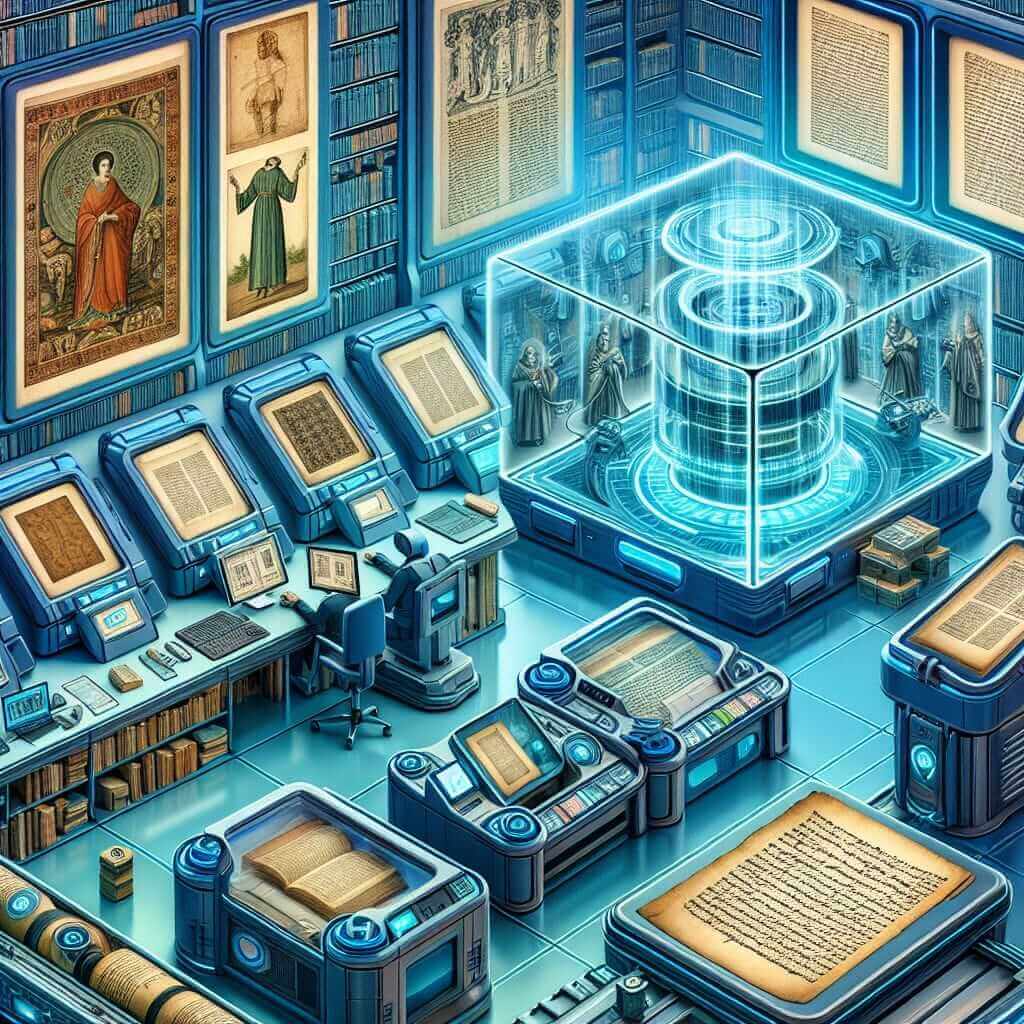The Reading section in the IELTS exam is designed to assess a variety of reading skills. You will be required to read various texts and answer questions that test your ability to comprehend, analyze, and integrate information presented in those texts. One frequent topic that has appeared in the IELTS Reading section is cultural preservation. In this post, we will explore the influence of digital media on cultural preservation, a subject that resonates with current global trends and has significant potential for future IELTS exams.
Reading Practice Test: Digital Media and Cultural Preservation
Passage
Digital Media’s Influence on Cultural Preservation
The advent of digital media has transformed many aspects of daily life, notably the way we access and share information. This transformation is particularly significant in the realm of cultural preservation. Digital media, encompassing everything from social media platforms to digital archives, plays an immense role in the safeguarding and dissemination of cultural heritage. Cultural practitioners argue that digital tools not only help in preserving ancient traditions but also in revitalizing waning customs.
Historically, cultural preservation was limited to physical artifacts, written texts, and oral traditions passed down through generations. These methods, while effective, faced numerous challenges like degradation and the risk of becoming obsolete. Digital media, however, mitigates these issues by providing an accessible and virtually indestructible medium for culture conservation.
Furthermore, digital platforms enable broader visibility of cultural practices. Social media, for example, allows indigenous communities to present their traditions globally, creating cross-cultural awareness and appreciation. Digital archives serve as repositories where vast amounts of cultural data, such as photographs, videos, and audio recordings, are stored and made accessible to researchers, historians, and the general public.
However, the impact of digital media on cultural preservation is a double-edged sword. While it offers opportunities for broader dissemination, it also raises concerns. Critics argue that the digital representation of culture can lead to misinterpretation and cultural appropriation. The commercialization of cultural elements in digital mediums sometimes results in the decontextualization of meaning, reducing culture to mere entertainment for global consumption.
Another concern is the digital divide. Not all communities have equal access to digital technologies, which can exacerbate existing cultural inequities. Those without digital access remain marginalized, their voices unheard and practices unrecorded.
In conclusion, digital media serves as both a boon and a challenge for cultural preservation. While it significantly advances the ability to safeguard and promote culture, careful consideration must be given to ethical representation and equitable access.
Questions
Question Type: True/False/Not Given
- Digital media has replaced physical artifacts entirely in cultural preservation.
- Social media allows for global presentation of indigenous traditions.
- Digital media ensures that all communities have equal access to technology for cultural preservation.
- Digital archives help store and make accessible vast amounts of cultural data.
- Critics agree unanimously that digital media positively impacts cultural preservation.
Question Type: Multiple Choice
-
According to the passage, which of the following is a challenge associated with traditional methods of cultural preservation?
A. Limited access
B. Deliberate destruction
C. Degradation over time
D. All of the above -
The phrase “double-edged sword” in the context of the passage refers to:
A. The dual benefits of digital media in promoting and preserving culture.
B. The challenges and benefits of digital media.
C. The effectiveness of traditional methods over digital ones.
D. None of the above
Question Type: Short Answer Questions
- Name one advantage of using digital media for cultural preservation.
- What is one disadvantage mentioned regarding the digital representation of culture?
- According to the passage, who benefits from digital archives?
Answer Keys
-
False – The passage mentions digital media as an addition, not a replacement.
-
True – The passage states that social media allows indigenous communities to present traditions globally.
-
False – The passage highlights unequal access to digital technologies as a concern.
-
True – It clearly states digital archives serve as repositories of cultural data.
-
Not Given – The passage mentions critics’ concerns but does not state unanimity.
-
C – Degradation over time.
-
B – The challenges and benefits of digital media.
-
Broader visibility of cultural practices.
-
Misinterpretation and cultural appropriation.
-
Researchers, historians, and the general public.
Common Errors to Avoid
- Misinterpreting Questions: Ensure you fully understand the question before attempting an answer.
- Overlooking Keywords: Focus on specific keywords in the passage that relate to the question.
- Ignoring Context: Pay attention to context to avoid taking statements out of context.
Vocabulary Highlights
- Advent (noun): /ədˈvɛnt/ – The arrival or creation of something (in the context of digital media).
- Revitalizing (verb): /riːˈvaɪtəlaɪzɪŋ/ – Making something active, healthy, or energetic again.
- Degradation (noun): /ˌdɛɡrəˈdeɪʃən/ – The condition or process of degrading or being degraded.
- Repository (noun): /rɪˈpɒzɪtəri/ – A place where things are stored and can be found.
- Decontextualization (noun): /ˌdiːkənˌtɛkstʃʊəlaɪˈzeɪʃən/ – The process of removing from a wider context.
Grammar Point: Conditional Sentences
Type 1: Used for real and possible situations.
- If digital media continues to evolve, it will provide more opportunities for cultural preservation.
Tips for a High Score in IELTS Reading
- Practice Regularly: Familiarize yourself with different question types.
- Expand Vocabulary: A broader vocabulary equates to better comprehension.
- Time Management: Allocate time wisely, and do not spend too long on any one question.
- Skim and Scan: Develop the skill of skimming for general ideas and scanning for specific information.

By integrating these strategies and regularly practicing with high-quality materials, you can enhance your reading skills and boost your IELTS Reading score. Happy studying!